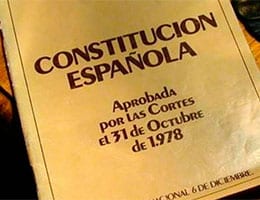 The adjective unalterable is used to describe that or that which cannot be altered or that is never altered . The idea of altering, in turn, refers to disturbing or modifying the form or essence of something.
The adjective unalterable is used to describe that or that which cannot be altered or that is never altered . The idea of altering, in turn, refers to disturbing or modifying the form or essence of something.
The unalterable, in short, does not change its state or condition . For example: “The president of the Central Bank assured that the interest rate will remain unchanged for at least a semester” , “It does not matter what my children say and do: my love for them is unalterable” , “According to analysts, the alliance between both countries will remain unchanged as long as there is no change of government.”
Suppose a man begins each of his days in the same way. He wakes up at 8 in the morning, has a coffee with milk with two cookies for breakfast and then takes a one-hour walk. It can be said that this individual's routine is unalterable since he never modifies it.
The past , meanwhile, is always unalterable: you cannot change what has already happened. Yes, it is possible to narrate or even remember what happened in an altered way or to influence its consequences. But what really happened is unalterable.
Take the case of a young man who, drunk, tries to forcibly kiss a friend, who pushes him and gets angry with him. The next day, with no trace of alcohol consumption, the boy understands that he acted wrong and apologizes to the girl. Even if his friend forgives him and he never engages in similar behavior again, what he did is unalterable because he cannot go back in time to avoid it.
This concept has a particularity that makes it especially complex or broad: it covers both those things that, by their nature, are impossible to modify and those that must be kept as they are to respect a standard. In the first group we must place "the events of the past", since naturally there is no way to go back in time and make corrections or make new decisions .
 Regarding those things that we cannot change because someone has decided, there are the rules and prohibitions that we must respect daily to live in harmony with other citizens: a public monument is an object that must remain intact because it is not the property of a not only one person but an entire people , so that no one has the right to paint it or change its shape.
Regarding those things that we cannot change because someone has decided, there are the rules and prohibitions that we must respect daily to live in harmony with other citizens: a public monument is an object that must remain intact because it is not the property of a not only one person but an entire people , so that no one has the right to paint it or change its shape.
The personal decision to make a routine unalterable is different, since we can abandon it at any time and replace it with another. In short, the weight of the unalterable is truly appreciated when there is nothing we can do to change its state, because this reminds us of our limits as mortal beings who are born on a planet without knowing why or for what purpose.
The Constitution of a country is another thing that can be considered unalterable only because it was decided that way by those who have the most power. When the government determines that the constitutional order is such that there is no need to make any reform to the laws, it erects a symbolic wall that is impenetrable to desires for change, as if the Constitution became the compendium of the laws of nature. , those that are truly unalterable for us.
And at this point we find a nuance that can serve to further differentiate the types of unalterable things: trying to change physics itself is directly impossible, but it does not entail negative consequences because there is nothing we can do; Going against legal norms, on the other hand, can lead to a judicial sentence of varying degrees of severity, which can include many years in prison or death .
